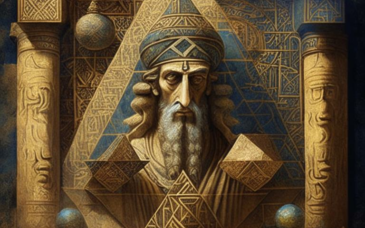Hebrew history is a tapestry woven with captivating stories of triumphs, trials, and divine intervention. Among the intriguing accounts that have intrigued historians and believers alike is the theme of deception. Let us journey back in time and explore some of the fascinating biblical narratives where deception played a pivotal role, shedding light on the complexities of human nature and the divine plan.
- The Garden of Eden: The story of Adam and Eve in the Garden of Eden is the foundation of Hebrew history. The serpent's cunning deception led to humanity's fall from grace, revealing the perilous consequences of disobedience and the importance of divine obedience.
- Jacob and Esau: Sibling rivalry reaches new heights in the tale of Jacob and Esau. Through a clever ruse, Jacob deceitfully gains his father Isaac's blessing meant for the elder son Esau. This incident highlights the consequences of dishonesty and the complexities of familial relationships.
- Joseph and His Brothers: The dramatic narrative of Joseph and his brothers showcases jealousy and deception. His brothers deceive their father Jacob by presenting Joseph's bloodied coat as evidence of his death, ultimately leading to Joseph's enslavement in Egypt.
- The Exodus: The miraculous Exodus from Egypt is marked by the deception of the Passover. Moses follows divine instructions to protect the Israelites by marking their doors with lamb's blood, ensuring their safe passage while the angel of death passes over Egypt.
- The Spies in Canaan: When Moses sends spies to scout the Promised Land, their deceitful report leads to a wavering of faith among the Israelites. This incident emphasizes the significance of honesty and trusting in God's promises.
- The Prophetic Deception: In the books of Kings and Chronicles, we encounter the deception of false prophets who lead the people astray with their misleading prophecies. The discernment between true and false prophets becomes a crucial theme in Hebrew history.
- The Deceptive Strategy of Rahab: Rahab, a Canaanite woman, deceives the King of Jericho to protect the Israelite spies, securing her family's safety during the fall of Jericho. Her act of bravery highlights the potential moral complexities in times of war.
- The Cunning of Delilah: Delilah's deceitful allure leads to the capture of the mighty Samson, showcasing the destructive power of deception in relationships and alliances.
- The Prophecy of the False Messiah: In the New Testament, Jesus warns his followers about false messiahs who will deceive many. This cautionary prophecy reflects the ongoing struggle to discern truth from deception throughout history.
- The Apocalypse: The book of Revelation foretells the rise of the Antichrist, the epitome of deception, whose ultimate goal is to challenge the divine plan. This apocalyptic vision serves as a reminder of the eternal struggle between good and evil.
Hebrew history is replete with tales of deception that provide valuable insights into the human condition and the divine providence at work. From the Garden of Eden to the Apocalyptic prophecies, these narratives remind us of the importance of discernment, truth, and fidelity to the divine plan as we navigate the complexities of life.






